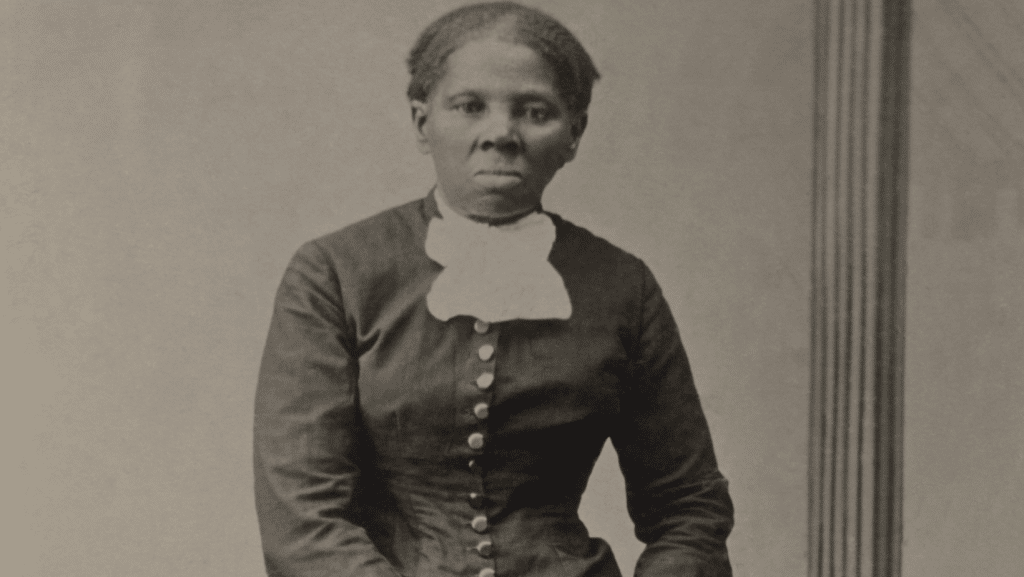Social Activist Harriet Tubman

Social Activist and Abolitionist Harriet Tubman, born into slavery around 1822 in Maryland, would go on to become one of the most prominent figures in American history. Her life’s journey is a remarkable tale of resilience, courage, and a relentless commitment to freedom and justice.
Early Life in Slavery
Harriet Tubman was born into the harsh realities of slavery, experiencing the brutality and dehumanization that marked the lives of millions in the antebellum South. Her given name at birth was Araminta Ross, and she was one of nine children born to enslaved parents. Conditions were dire, and the threat of separation from family members loomed over their lives.
As a child, Harriet suffered a severe head injury inflicted by an overseer. This traumatic incident left her with lifelong health issues but also sparked a determination to resist and escape the bonds of slavery.
Escape to Freedom
In 1849, Harriet Tubman took a daring step towards freedom. Fearing that she and her family would be sold, she decided to escape slavery, leaving her husband behind. This escape marked the beginning of a new chapter in Tubman’s life, one dedicated to the pursuit of liberty and justice.
Harriet’s first journey to freedom took her about 90 miles to Pennsylvania. The path was fraught with danger, navigating through forests, rivers, and hostile territory. Along the way, she relied on the Underground Railroad—a network of secret routes and safe houses—to find refuge.
The Underground Railroad Conductor
Harriet Tubman’s successful escape fueled her determination to help others break free from the shackles of slavery. She became a conductor on the Underground Railroad, risking her life to guide fellow enslaved individuals to freedom. Tubman’s deep knowledge of the land, her resourcefulness, and her ability to navigate the intricate network of safe houses made her an invaluable asset to the cause of abolition.
Over the course of nearly a decade, Tubman made multiple dangerous journeys back to the South, personally leading around 13 expeditions and aiding in the emancipation of over 70 slaves. Her courageous efforts earned her the nickname “Moses” among those she helped to liberate.
The Civil War and Tubman’s Contributions
When the Civil War erupted in 1861, Harriet Tubman found a new way to serve the cause of freedom. She worked as a nurse, cook, and laundress for the Union Army, tending to wounded soldiers and contributing to the war effort. Her understanding of herbal medicine, acquired through years of practical experience, proved invaluable in treating various ailments.
In addition to her roles in support services, Tubman also served as a spy and scout for the Union. Her ability to gather intelligence and navigate the Southern terrain made her a valuable asset. Tubman’s efforts directly contributed to the success of several military operations, earning her the respect and admiration of Union commanders.
Post-War Activism and Women’s Rights
Following the Civil War, Harriet Tubman continued her advocacy for freedom and equality. She joined the fight for women’s suffrage, working alongside prominent suffragists like Susan B. Anthony and Elizabeth Cady Stanton. Tubman recognized the intersectionality of oppression and the importance of addressing both racial and gender inequality.
Her commitment to the cause of women’s rights was highlighted in her speech at the 1893 World’s Columbian Exposition in Chicago, where she emphasized the need for women’s voices to be heard in the political sphere. Tubman’s dedication to justice expanded beyond the abolition of slavery, making her a pioneer in the broader struggle for civil rights.
Later Years and Legacy
In her later years, Harriet Tubman settled in Auburn, New York, on land that she had purchased. Despite facing financial hardships, she remained active in her community, providing assistance to those in need. Tubman’s home in Auburn became a haven for elderly African Americans, and she continued to speak out against injustice until her death in 1913.
Harriet Tubman’s legacy endures as a beacon of courage and resilience. The impact of her efforts in the Underground Railroad, her contributions to the Civil War, and her advocacy for women’s rights collectively shape a narrative of a woman who defied the odds and left an indelible mark on American history.
Harriet Tubman’s Enduring Influence
Harriet Tubman’s life is a testament to the power of one individual’s determination to fight against injustice. From her early experiences as a slave to her role as a conductor on the Underground Railroad and her contributions to the Civil War, Tubman’s legacy is woven into the fabric of American history.
Her commitment to the pursuit of freedom, her acts of bravery in the face of danger, and her advocacy for the rights of all marginalized communities make Harriet Tubman a symbol of resilience and an inspiration for generations to come. As we reflect on her life, we are reminded of the ongoing struggle for justice and equality, a struggle in which Tubman played a pivotal role and one that continues to shape the course of our nation’s history.

Educational Benefits of Travel for Students
Explore educational benefits of travel for students, including cultural awareness, academic growth, personal development, and lifelong skills.

Washington DC 4th of July Celebration
Experience the excitement of Washington DC 4th of July celebration, featuring fireworks, parades, concerts, and patriotic festivities.

Arlington National Cemetery Tour
Discover history, honor heroes, and experience solemn traditions on an Arlington National Cemetery tour, a meaningful visit for all ages.


